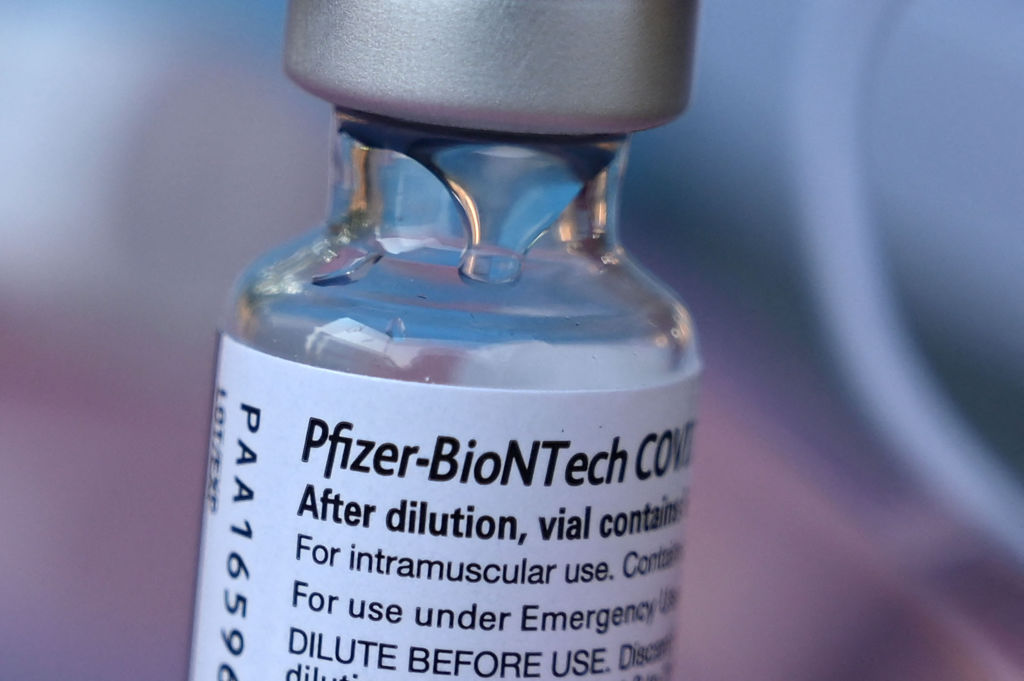
Covid-19 booster shots are one step closer to reaching arms, but in a much more limited fashion than either Pfizer or the Biden administration planned. An FDA advisory committee on Friday voted against booster shots for the general U.S. population, opting instead to throw its support behind third shots for certain high-risk groups.
The original voting question asked whether the safety and effectiveness data from clinical trials support approval of a booster dose six months after the second shot in those 16 and older. After that vote failed 18 to 2, the panel of independent health care experts suggested revisions to the voting question. Instead of an approval recommendation, the question was changed to emergency use authorization. The voting question was further revised to narrow those covered by the recommendation to people 65 and older as well as individuals at high risk of severe Covid-19. This second vote passed 18 to 0.
Following that vote, panelists were polled as to whether healthcare workers and others at high risk of exposure to Covid-19 through their jobs should be covered by the emergency authorization. The panelists unanimously supported that poll question.
The FDA is not bound by committee votes, but the agency takes the votes and panel discussion into consideration as it weighs its decision. Peter Marks, director of the FDA’s Center for Biologics Evaluation and Research, suggested that emergency authorization gives the regulator more leeway.
“That is why we moved to this kind of a pathway because we have more flexibility,” he said.

A Deep-dive Into Specialty Pharma
A specialty drug is a class of prescription medications used to treat complex, chronic or rare medical conditions. Although this classification was originally intended to define the treatment of rare, also termed “orphan” diseases, affecting fewer than 200,000 people in the US, more recently, specialty drugs have emerged as the cornerstone of treatment for chronic and complex diseases such as cancer, autoimmune conditions, diabetes, hepatitis C, and HIV/AIDS.
The outcome of the daylong committee meeting puts the Biden administration plans to begin booster shots by Sept. 20 in doubt. A month ago, federal health officials announced a plans to begin booster shots to protect against waning immunity in the face of rising infections spurred by the delta variant. But on Friday, many advisory panel members questioned whether the data actually support the need for booster shots.
Michael Kurilla, a committee member and an official at the National Institutes of Health, said that Pfizer’s position that the vaccine was providing good immunity, but not good durability appeared to be in conflict. He said he can understand the need for booster shots in certain populations , such as the elderly and immunocompromised.
“It’s not very clear to me that the data we’re seeing right now is applicable to the general population,” Kurilla said.
Other panelists expressed concern about the risk of myocarditis, or inflammation of the heart muscle. Surveillance of vaccine side effects in the months following its authorization found a small number of cases, particularly in the first week following vaccination. That risk was highest in young males 12 to 17 years of age.
Bill Gruber, Pfizer’s senior vice president of vaccine clinical research and development, said that the shared goal is a vaccine that is a safe and effective tool for the broad population. The myocarditis risk is already included in the label for the vaccine, which was granted full FDA approval in late August. That side effect is so rare that it’s unlikely to be identified in clinical trials. The published data, he said, make clear that the vaccine’s benefits outweigh its risks in the 16 to 17 age group and older, he said.
Jay Portnoy, a professor of pediatrics at Children’s Mercy Hospital in Kansas City, Missouri, was one of the two “yes” votes supporting boosters in those 16 and older. The myocarditis risk is real, he said. But he added that as someone who works in a children’s hospital that is treating many infected children, the question is whether that risk, or any other, is greater than the risk of being infected by the virus.
Others on the panel were not persuaded. Paul Offit, a professor of pediatrics at The Children’s Hospital of Philadelphia, said the panel was being asked to approve a vaccine for those 16 and older without clear evidence that a third dose is needed. Without that evidence, the risk of a booster might outweigh its benefit. He added that he supported a booster for the elderly but not for those 16 and older. Archana Chatterjee, dean of the Chicago Medical School at Rosalind Franklin University, expressed reservations about taking data from older age groups and extrapolating them to those 16 and 17 years old. She added that the database of safety reports is too small.
“I would like to see more data before I would recommend this for a younger age group but over 60 is O.K. from my standpoint,” she said.
Booster shots are already permitted for the immunocompromised, an amendment the FDA made to the original emergency authorization last month. If the FDA follows the advisory committee’s recommendation, that authorization would expand to the elderly and others that have health conditions that put them at greater risk of infection. Another panel, the Centers for Disease Control and Prevention’s Advisory Committee on Immunization Practices (ACIP), could make recommendations that further spell out who should be covered by boosters. Those groups could include healthcare workers and teachers.
Amanda Cohn, chief medical officer of the CDC’s National Center for Immunizations and Respiratory Diseases, said the recommendation could cover people at high risk due to occupational exposure. She added that she hopes the advisory panel and the FDA can revisit booster shots when more data become available for younger age groups.
The next scheduled ACIP meetings are Sept. 22 and 23.
Photo: Robyn Beck/AFP, via Getty Images













